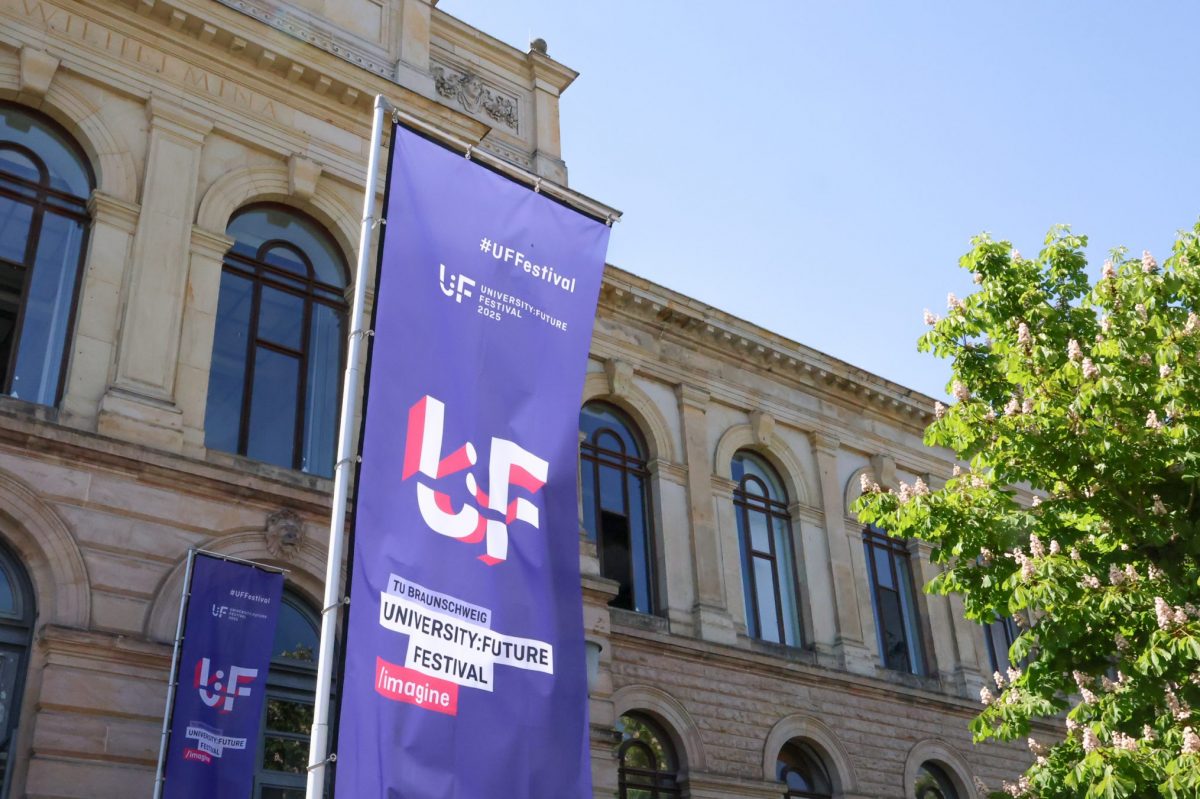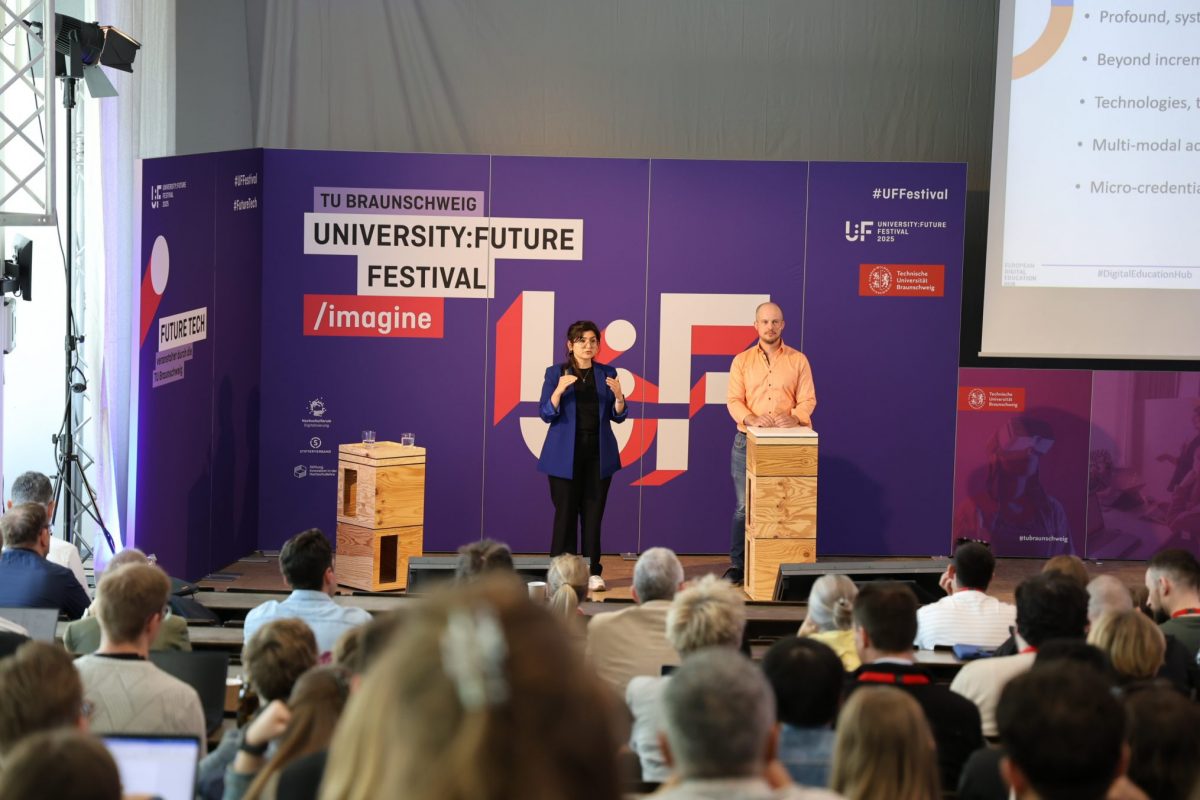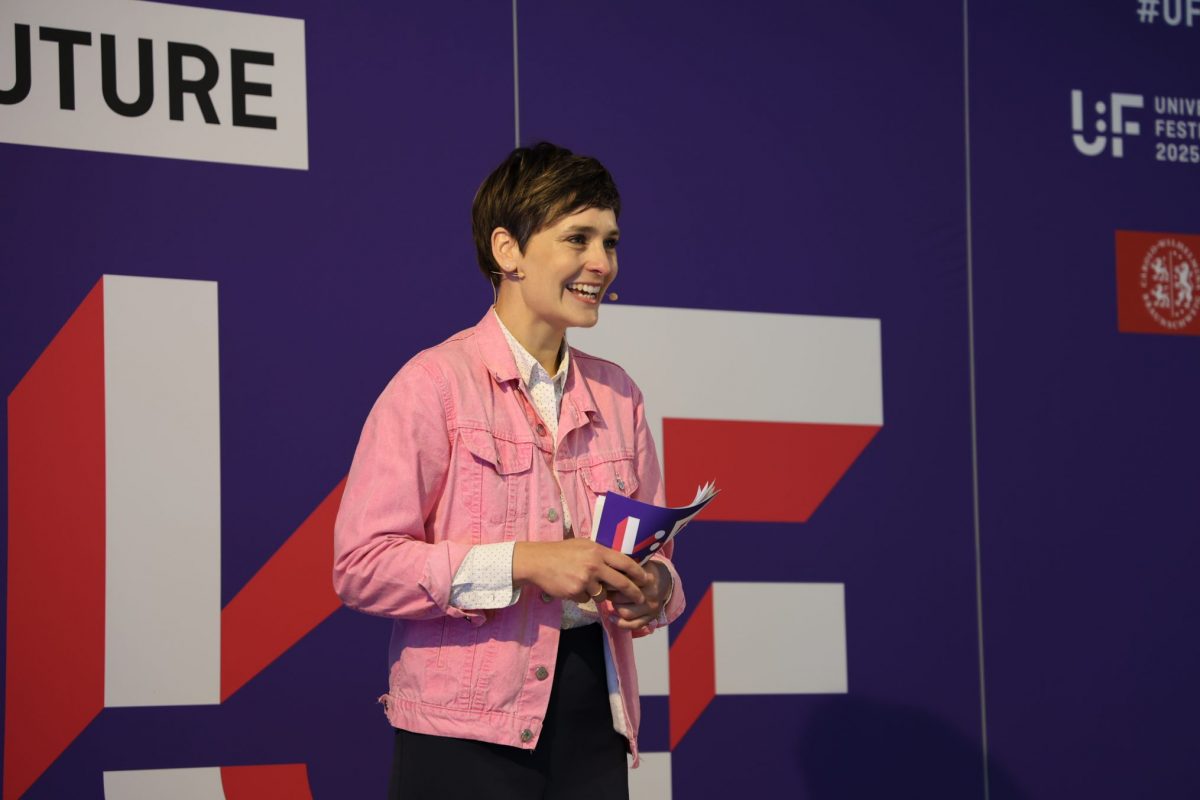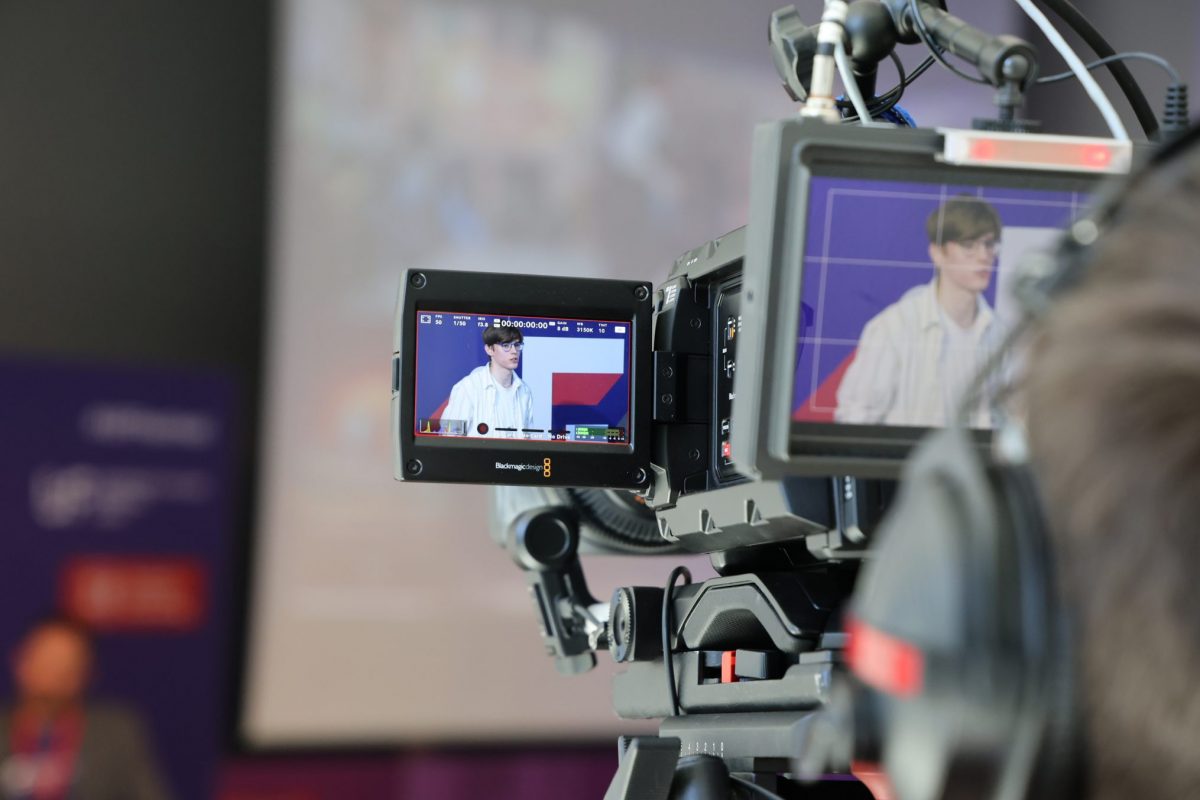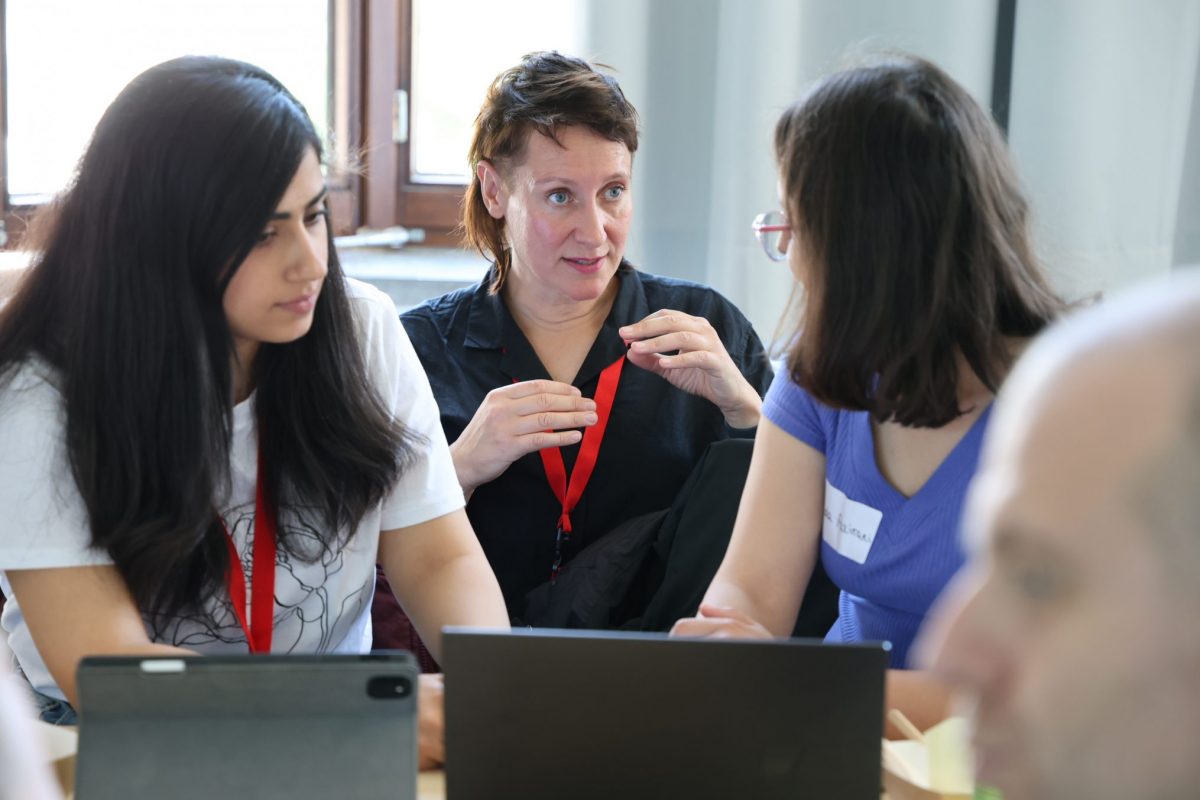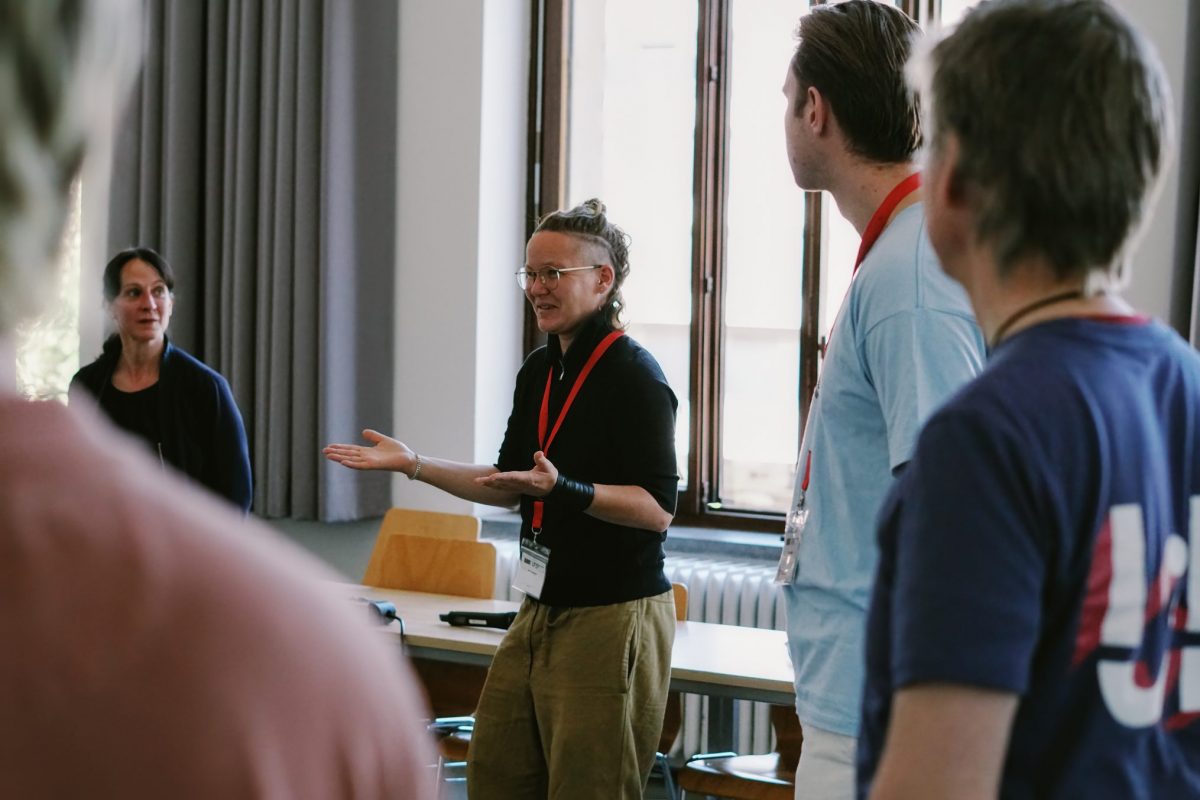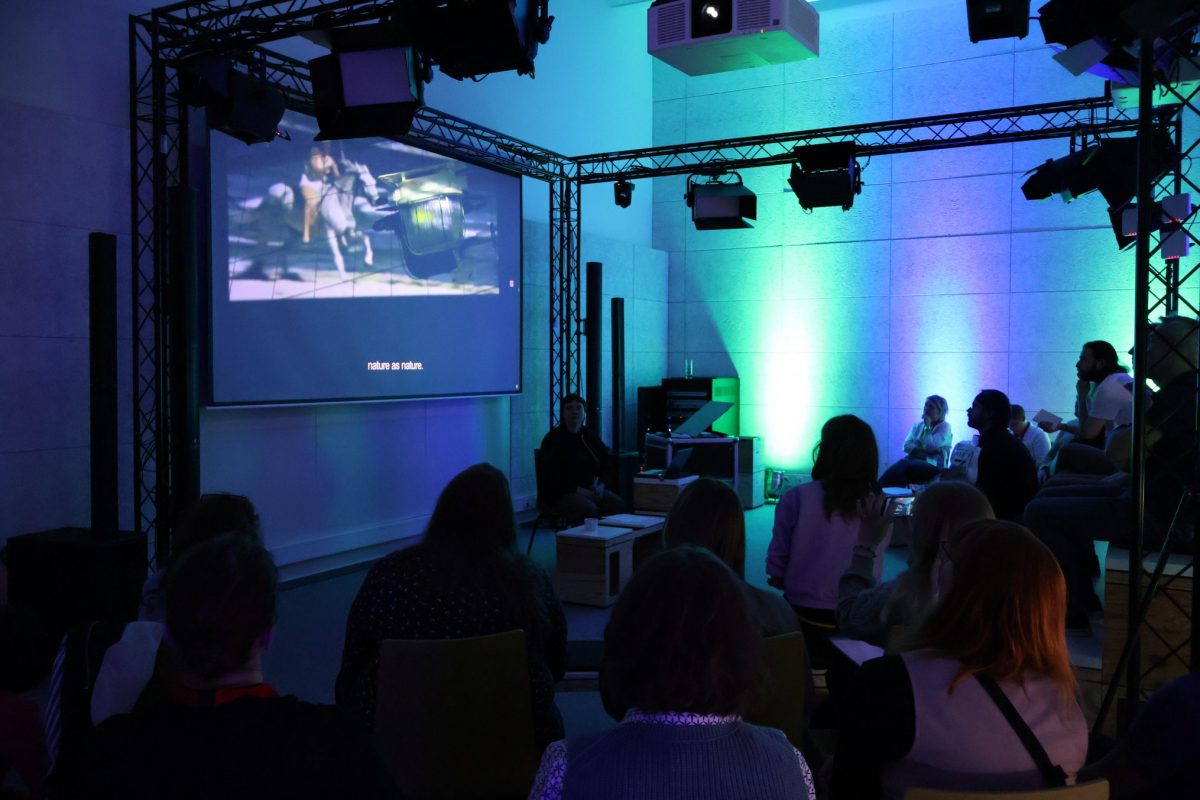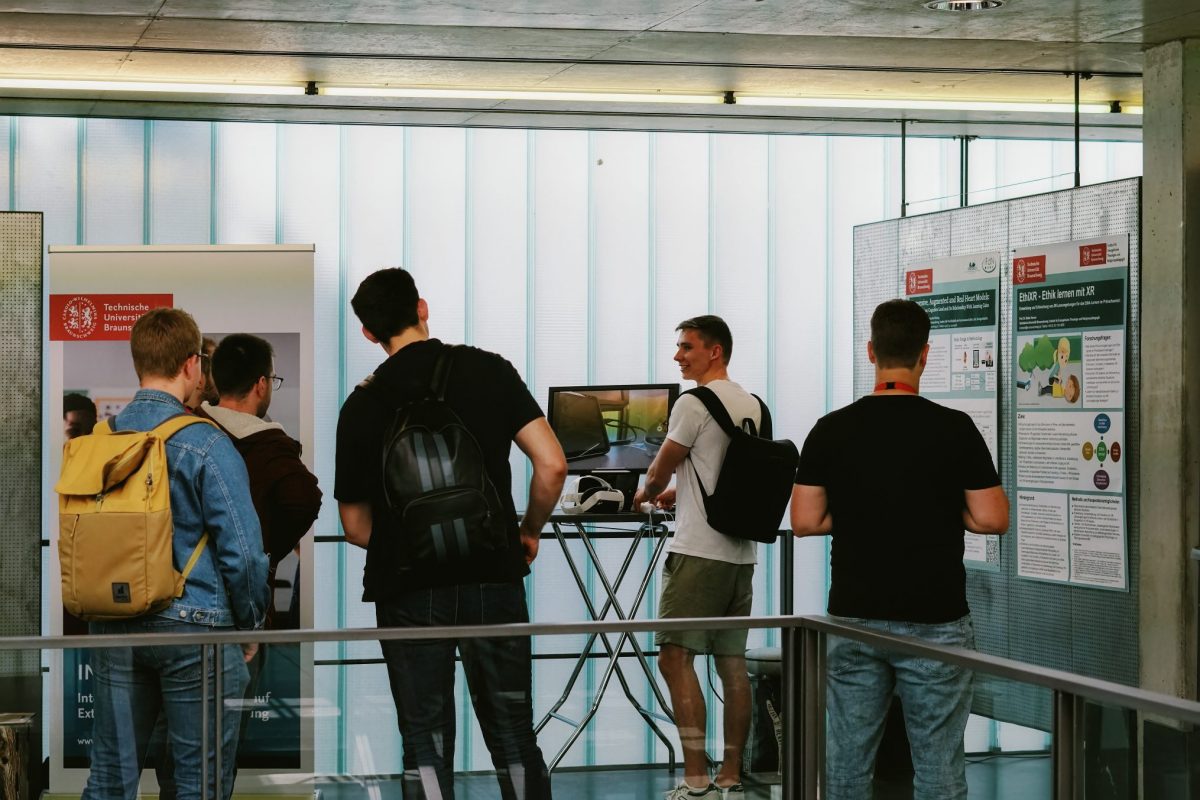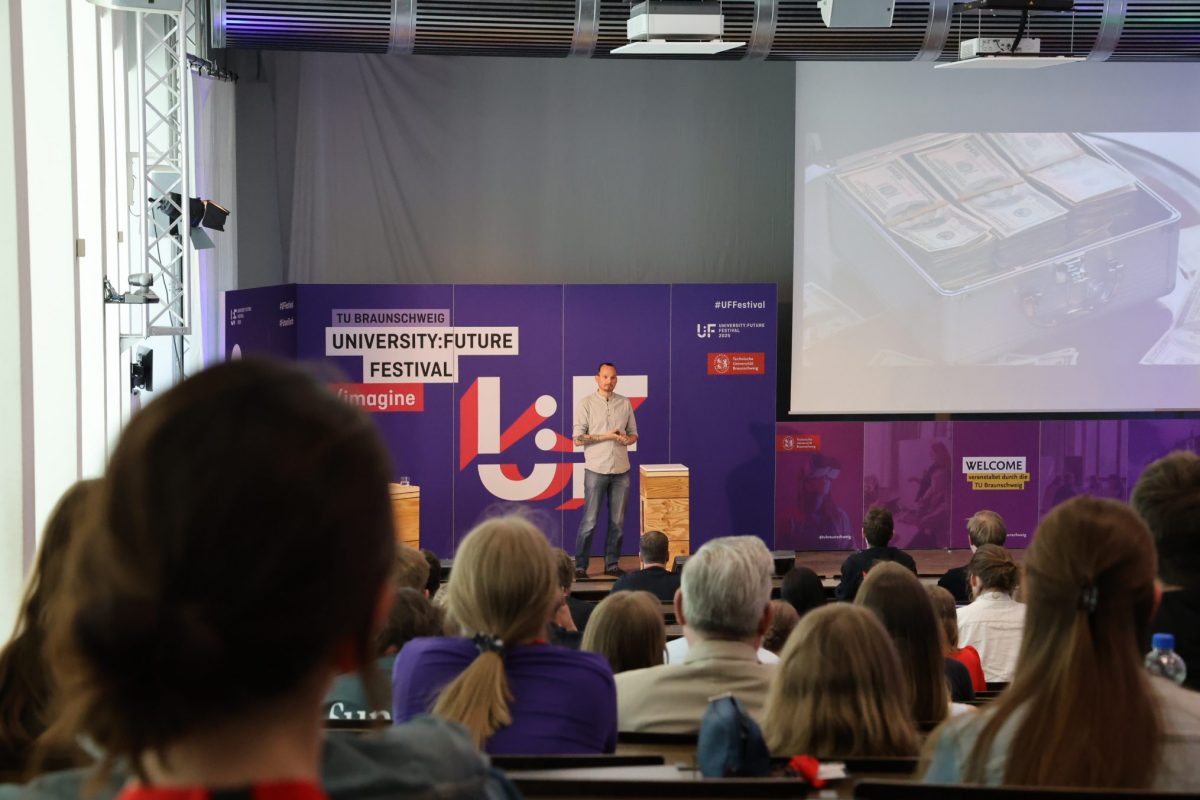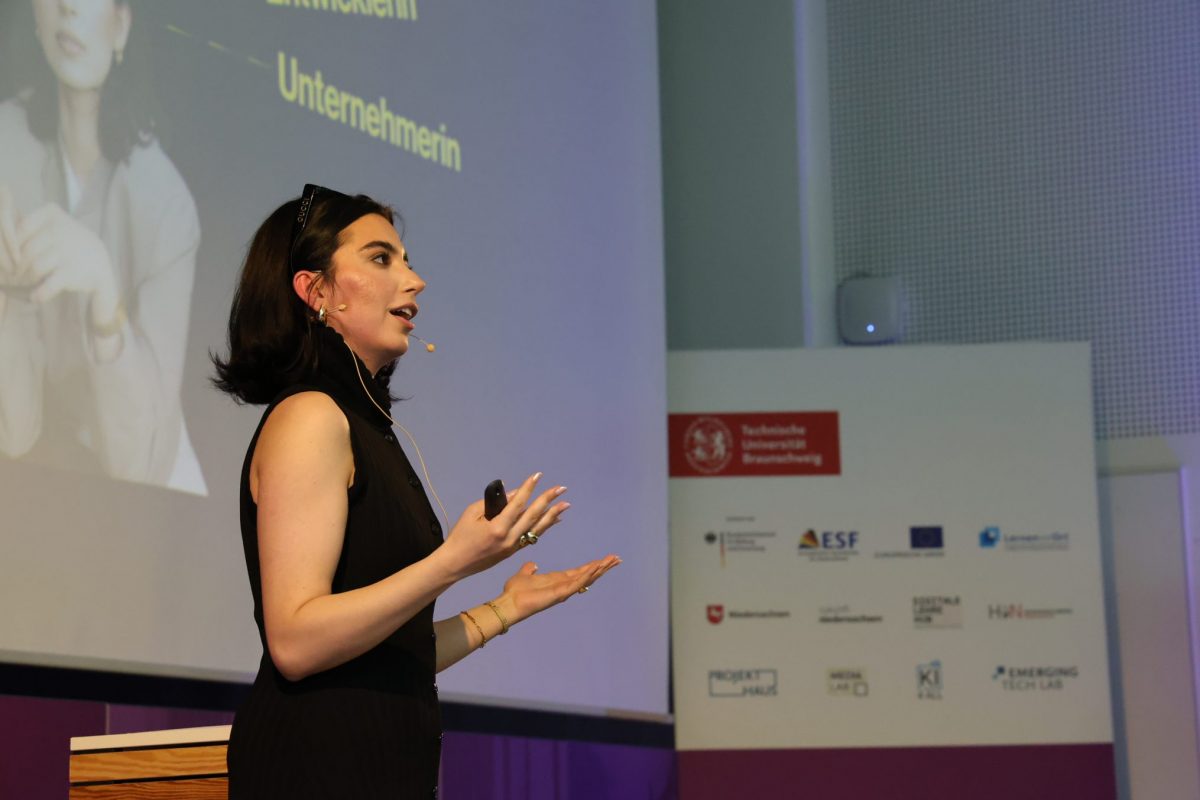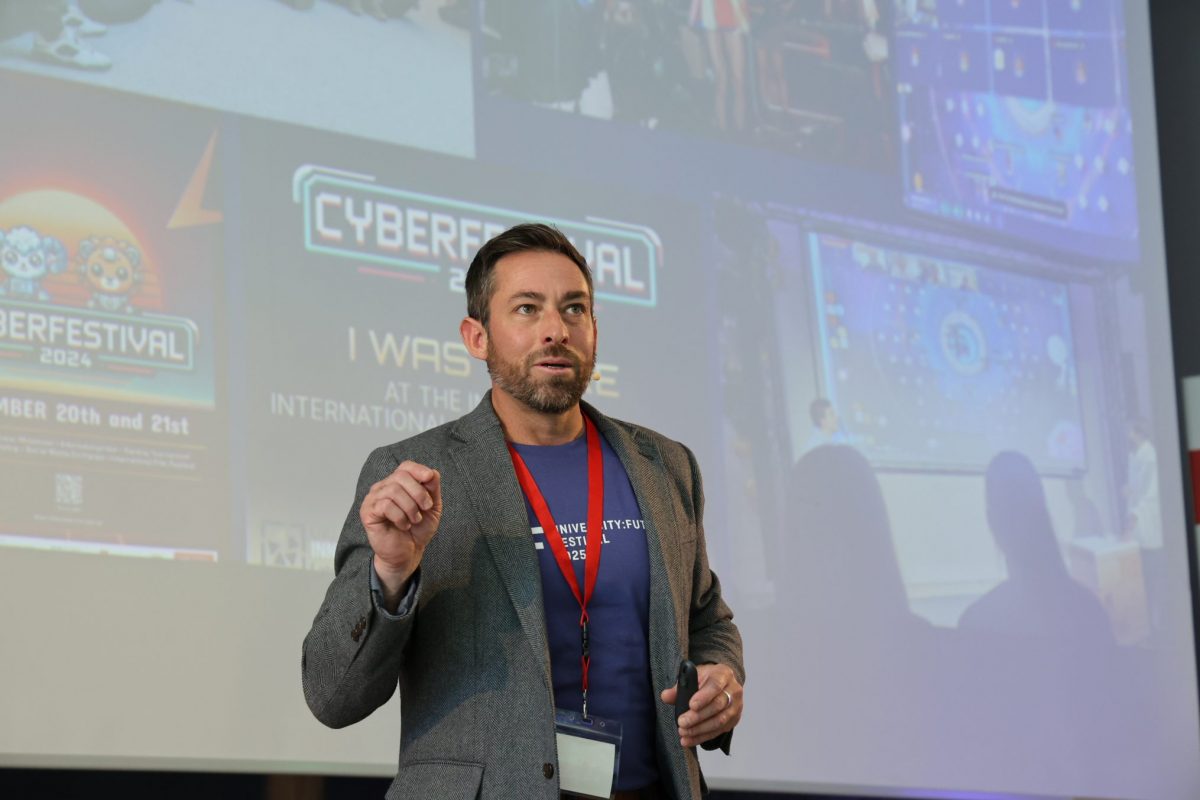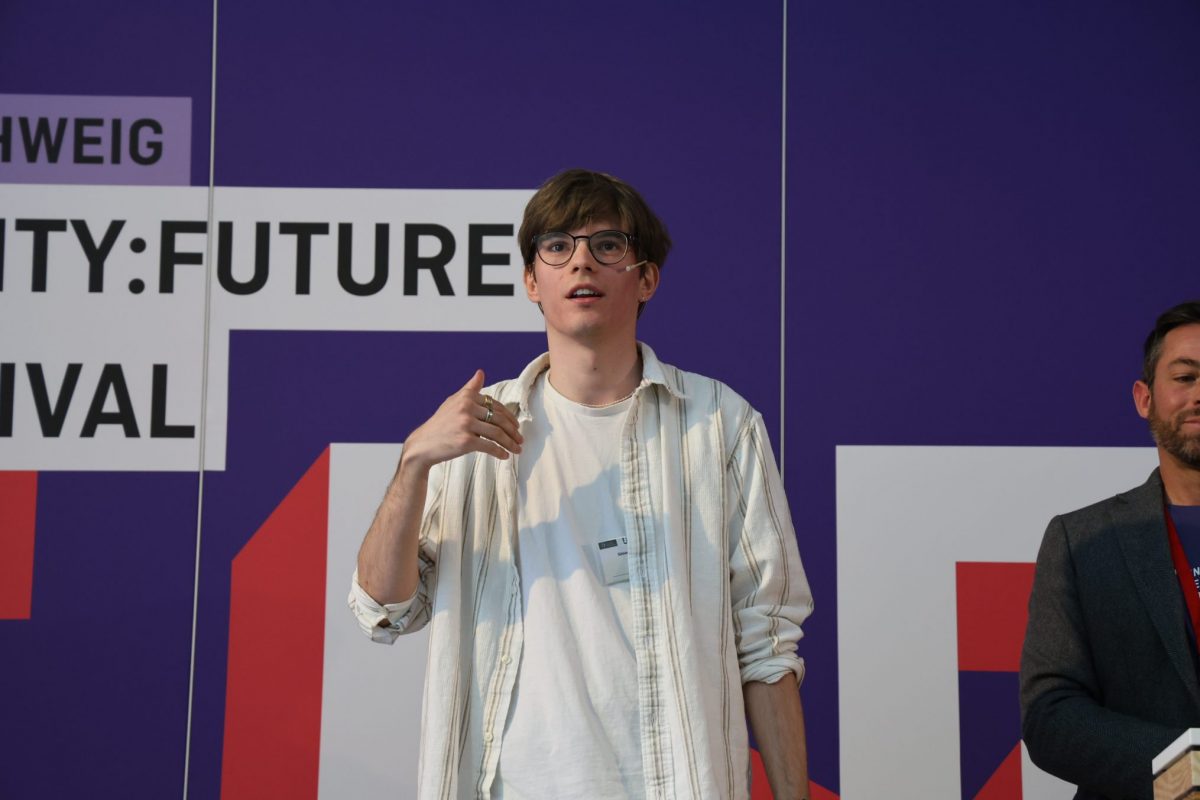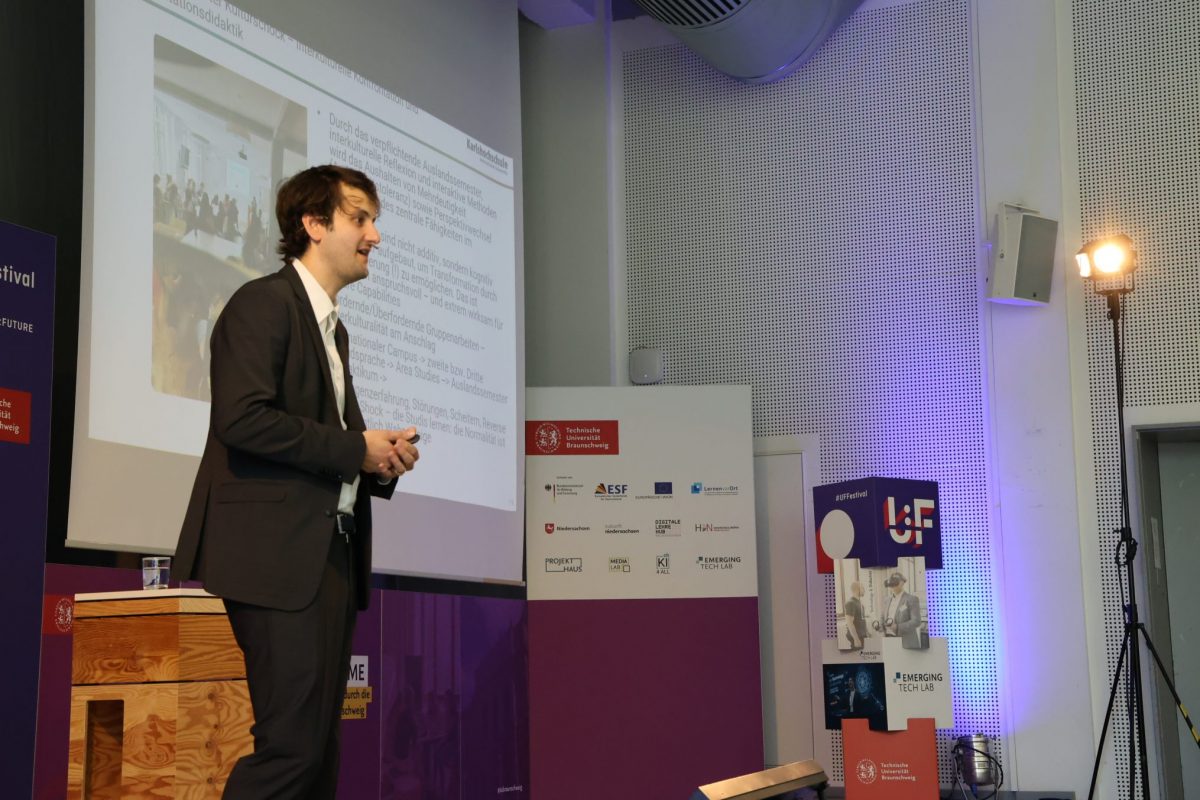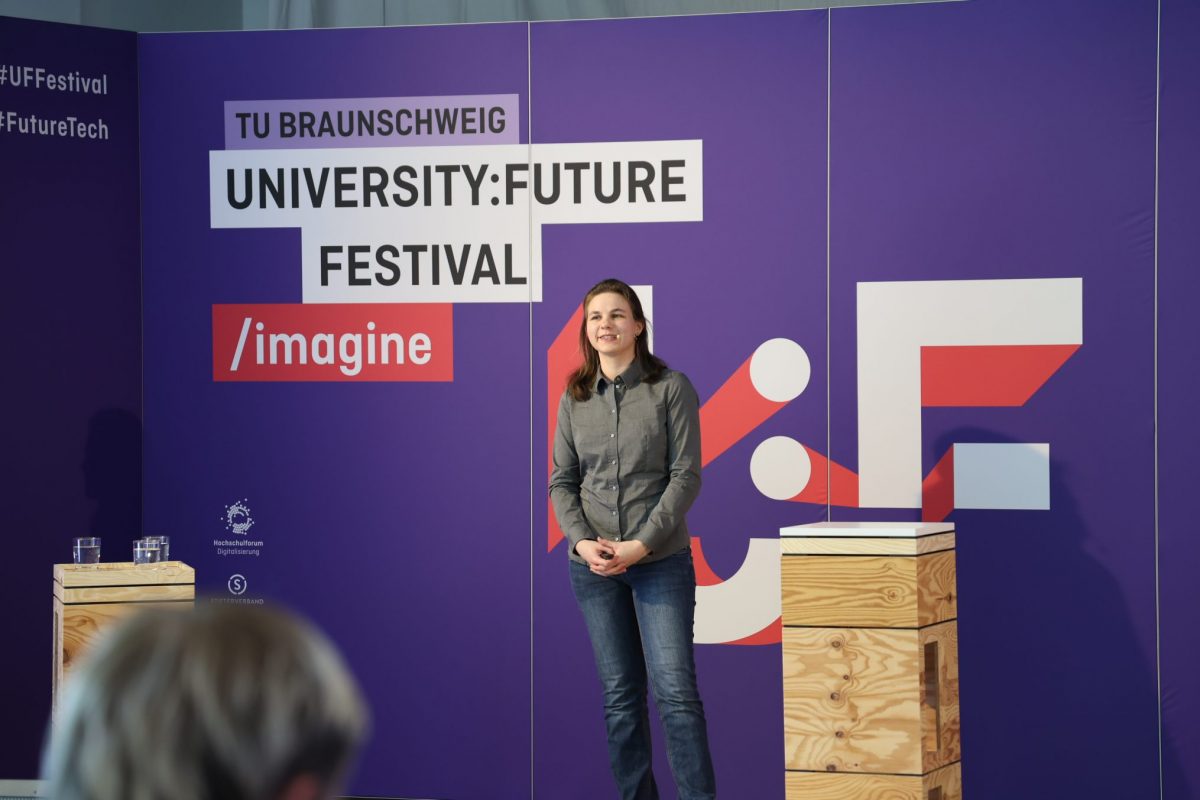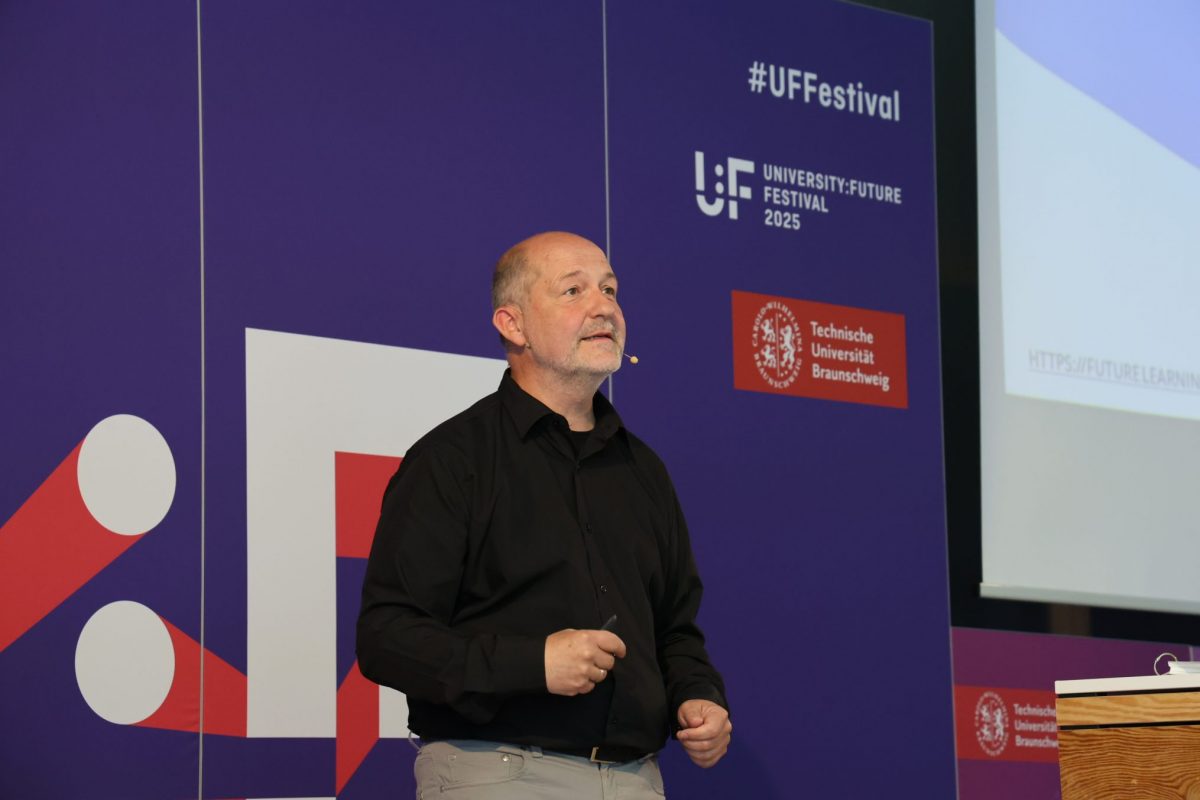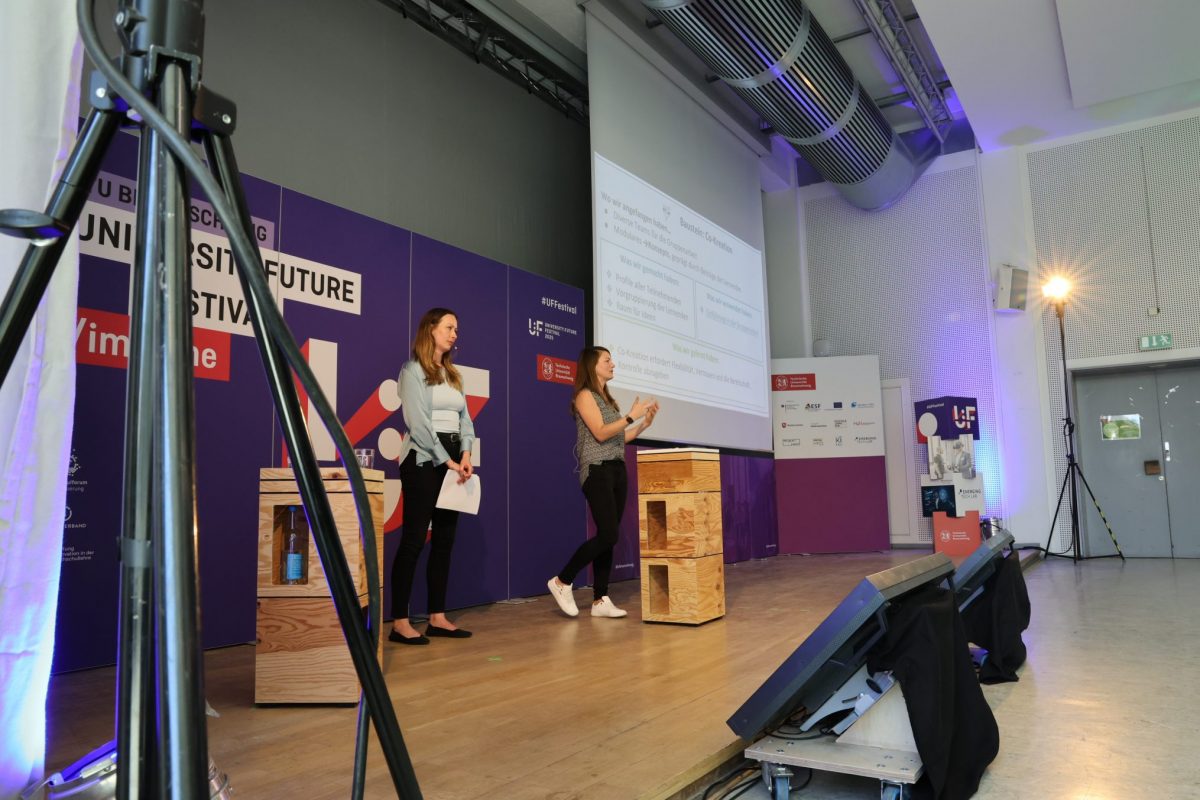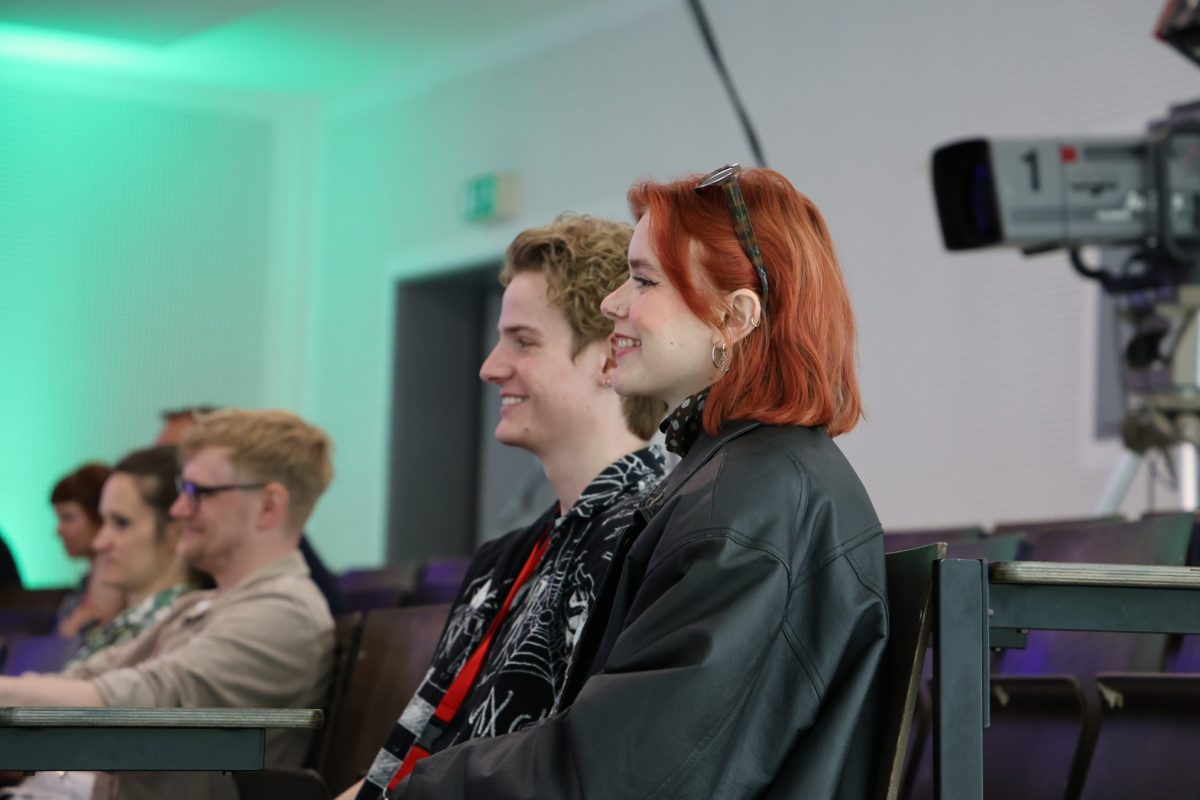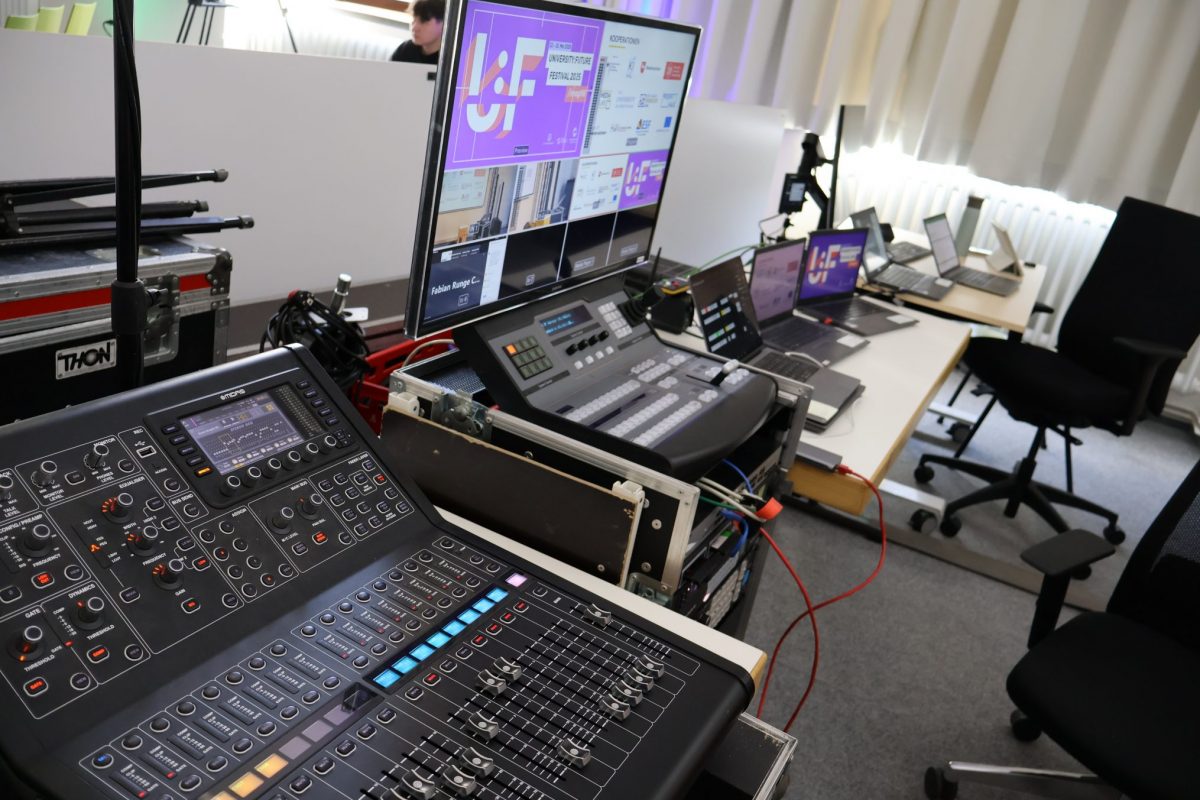Future Tech in higher education University Future Festival at TU Braunschweig
On 13 May 2025, the Technical University of Braunschweig invited guests to the Future-Tech:Stage at the University:Future Festival (U:FF) 2025. The partner stage was organised by the Project House with the Media Lab and EmergingTech Lab of the Technical University of Braunschweig in cooperation with the Higher Education Forum for Digitalisation, the Foundation for Innovation in Higher Education and the Stifterverband. The focus was on future technologies such as artificial intelligence, virtual reality and quantum computing – and their use in higher education.
The University:Future Festival is a forum for discussing innovative concepts for tomorrow’s higher education. The future of digital education will be shaped largely by artificial intelligence and virtual reality, while the application areas of quantum computing are already emerging on the horizon.

